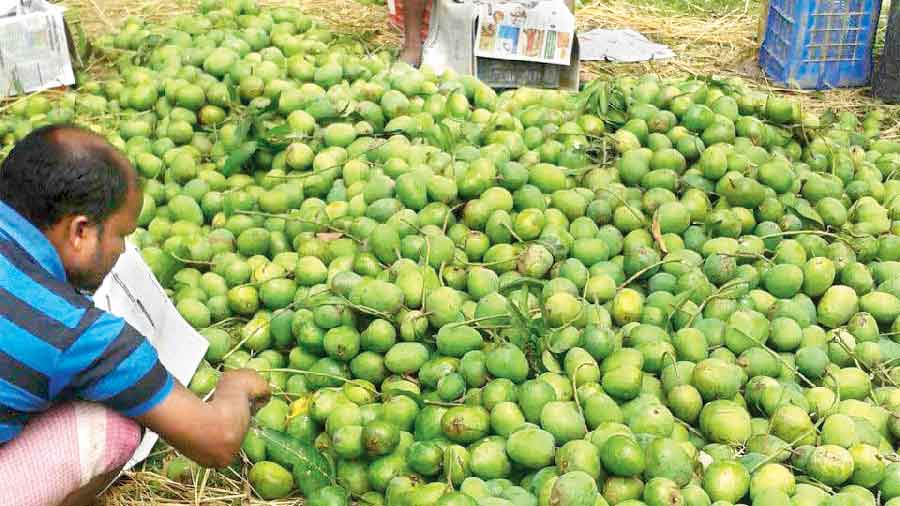The state government has decided to reach out to mango growers to urge them to apply for the status of authentic sellers of GI-tagged mangoes in an attempt to boost export of the summer delicacy, officials said.
The three Bengal varieties that have received the geographical indication tag are Fazli, Lakshmanbhog and Khirsapati or Himsagar.
Senior officials of the West Bengal State Council of Science and Technology, which functions under the state science and technology department, said they would hold sessions to explain to mango producers the process to apply for the status of GI-tagged mango seller.
The move follows a nudge from chief minister Mamata Banerjee to promote export of all products of Bengal, including the ones that have received GI tags.
West Bengal exports between 300 and 350 tonnes of mango to Europe. Each mango for export weighs between 300g and 350g.
Officials in the department of science and technology said they were looking forward to doubling the volume considering the global demand for West Bengal's mangoes.
The three varieties — Fazli, Lakshmanbhog and Khirsapati — had received the GI tag in 2008. Despite several thousands involved in producing mangoes, only 39 producers from Malda have so far bagged the status of GI-tagged mango seller, officials in the department of science and technology said.
“We have had a series of meetings with district magistrates on the issue. We want the number of registered sellers of GI-tagged mangoes to go up,” said Mahuya Hom Choudhury of the patent wing of the department. “Greater export will mean better socio-economic conditions for the producers.”
To bag a GI certificate, farmers have to follow certain processes, including applying fertilisers in the right amount, de-sapping, washing, waxing and packaging.
“After de-sapping, fruits are washed in water containing detergent and fungicide (benomyl 500 ppm). Fungicidal treatment prevents the incidence of anthracnose disease. After removing the fruits from solution, these should be rinsed in water to remove excess fungicide from the surface of fruits,” the GI document states.
Officials in the science and technology department said they would focus on mango producers from Malda, where plantations are spread across 30,500 hectares.
The district produces around 3.5 lakh tonnes of mango annually. In all, 80,000 producers and close to 2 lakh families earn their living from the fruit.
